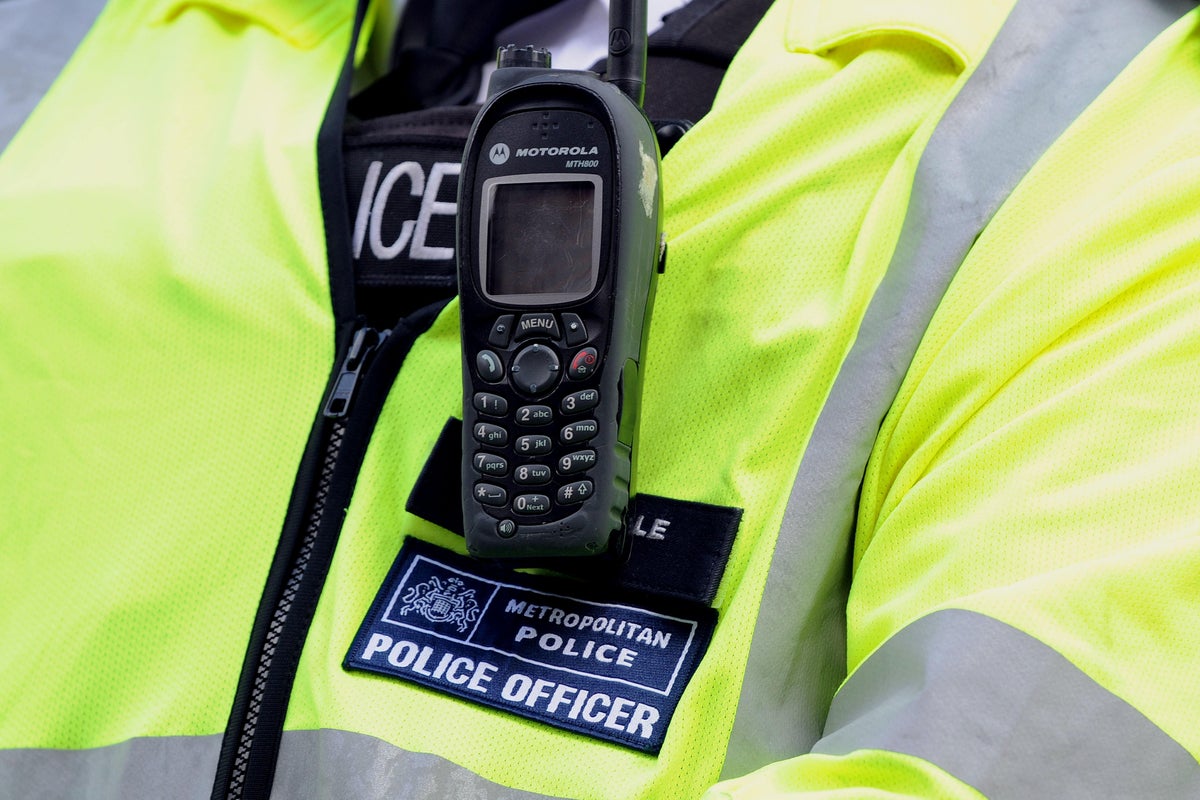
Dozens of Metropolitan Police officers remain in the force after having their vetting withdrawn, The Independent can reveal.
The convictions of serial rapist David Carrick and rapist and murderer Wayne Couzens, both serving officers when they committed their crimes, exposed deficiencies in the recruitment processes of Britain's largest police force.
Last March, the Met launched Operation Assure, which assesses the vetting of serving officers and staff when concerns have been pinpointed about their conduct.
Information obtained under freedom of information laws shows that, in the last five years, 53 police officers had their vetting withdrawn while serving in the Met.
Of those, 30 are undergoing appeals, 12 had their appeals dismissed and are awaiting performance hearings, and 11 have left the force due to resigning, retiring or being dismissed.
The Met stopped short of confirming whether the officers still in the force are suspended but a spokesperson said: “If we have information that an officer is involved in corrupt or abusive behaviour, we review their vetting and remove it if justified.
“After removal of vetting, officers can no longer perform their role or access any police systems, and face gross incompetence proceedings.”
Conservative MP Caroline Nokes, who chairs parliament’s women and equalities committee, said: “It’s crucially important that the Met Police restores the confidence of women and girls across the capital and it needs to do so with utmost transparency. Following high-profile criminal cases against serving Met officers, trust in the Met has never been lower.”
The Metropolitan Police was placed in special measures even before a review by Baroness Casey, in the wake of the killing of Sarah Everard by Couzens, which found it to be institutionally misogynistic, racist and homophobic.
The force has faced fierce criticism over the case of Carrick who served as an officer for over two decades before being exposed as one of the country’s worst sex offenders. The serial rapist faced complaints about his behaviour both while serving and before he became an officer, yet no action was taken.
Data shows a backlog of 397 misconduct cases in the Met Police yet to be heard, an increase of 42 since October. Some 344 officers remaining in the force are waiting for their cases to begin.
Nadia Whittome, Labour MP for Nottingham East, said the public would “rightly expect that any police officer whose vetting had been revoked should, at the very least, be suspended”.
She called for the Met Police to “urgently clarify whether or not this is the case” as she warned that “the lack of clarity” will further fuel the public’s mistrust of the force.
Habib Kadiri, executive director of police reform charity StopWatch, said: “Police chiefs, as a matter of principle, owe it to the public to be transparent about the decisions they make regarding the conduct of their officers.”
People seeking to abuse women and girls are likely to be attracted to policing, as it has access to power and equipment that can be used to perpetrate this abuse— Amy Bowdrey, Refuge
Met Police rolled out Operation Assure last April and is currently reviewing the vetting of around 200 officers.
Amy Bowdrey of domestic abuse charity Refuge, with which The Independent has partnered, said the Met’s failure to “act proportionately to potential police perpetrators of violence against women and girls puts women’s and girls’ lives at real risk”.
She added: “The police urgently need to acknowledge that people seeking to abuse women and girls are likely to be attracted to policing, as it has access to power and equipment that can be used to perpetrate this abuse.”
The Independent last year revealed three-quarters of police officers and staff accused of violence against women were not suspended by their force despite the allegations against them. In the Met Police, just 12 per cent of officers and staff were suspended after being accused of crimes such as sexual assault and domestic violence.
Commissioner Sir Mark Rowley has admitted to inadequate vetting and noted police officers are not regulated by conventional employment law.
A damning report by HM Inspectorate of Constabulary from 2022 found hundreds, if not thousands, of police officers who should have failed vetting checks may have been in the job in England and Wales.
The watchdog discovered many cases where individuals should not have been permitted to become police officers, including some with organised crime connections and predatory sex offenders.







